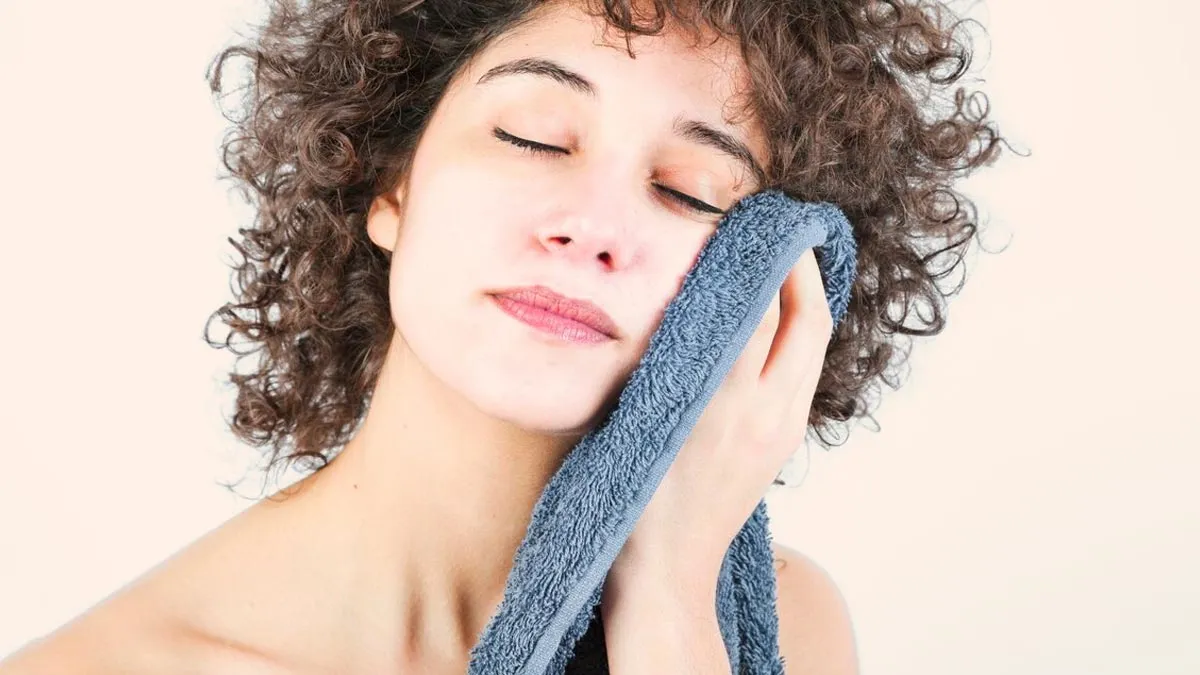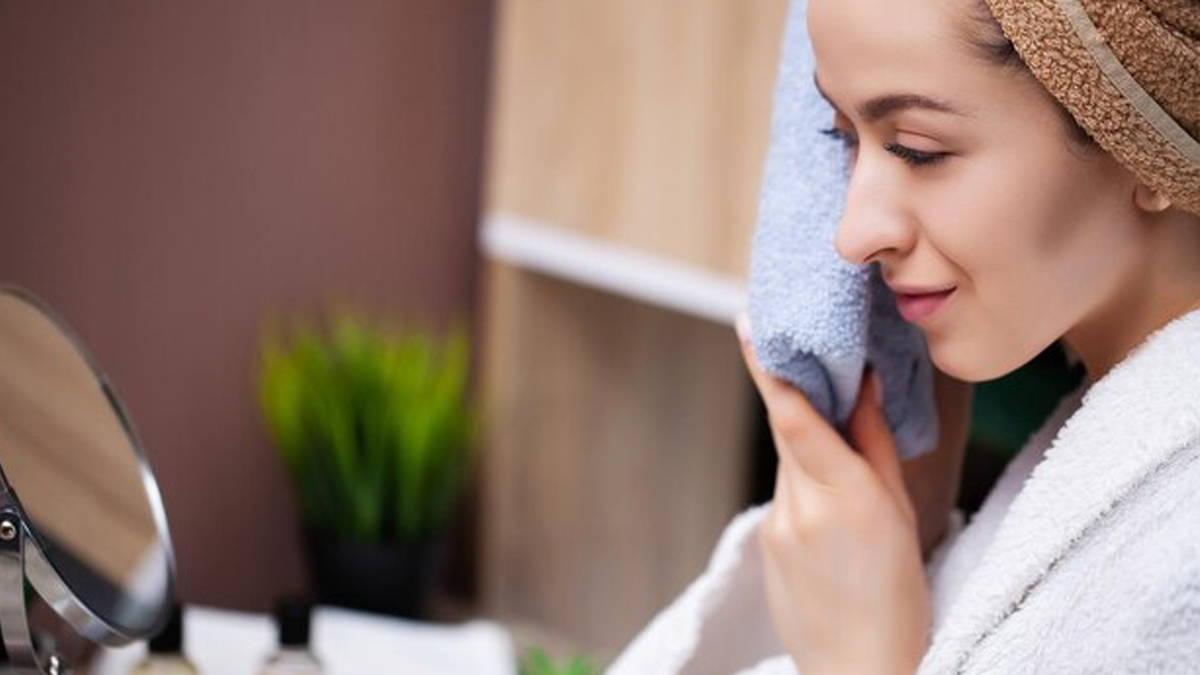
It’s one of the most basic steps in our daily routine: stepping out of a shower and reaching for the towel. The simple act of drying off feels like the final, clean seal on our routine; however, our towels may secretly be sabotaging all our efforts, making a freshly cleaned skin into a bacterial breeding ground and triggering a whole range of unwanted skin problems.
Table of Content:-
Dermatologists and microbiologists suggest that a dirty, damp bath towel is a microbial breeding ground in waiting, and neglecting good towel hygiene might be the cause of your ongoing acne, irritation, or even infection.
In an exclusive interaction with the editorial team of Onlymyhealth, our expert, Dr Pravin Banodkar, MBBS, DNB, DD (UK), FIDP Dermatology, Co-Founder and Lead Dermatologist of Skin Beyond Borders, Mumbai, explained that towels provide the ideal environment for microbial growth. They are manufactured with absorbent fibres, and following use, they contain a powerful combination of:
- Moisture and Warmth: The union of a wet towel and a generally warm, poorly ventilated bathroom is an environment in which bacteria and fungi love to live. Microbes grow at an alarming rate in this warm shelter.
- Dead Skin Cells and Body Oils: As you dry your skin, you leave dead skin cells, natural oils, and residue from soaps and body products on the material. This gives a smorgasbord of food to the remaining microorganisms.
- Cross-Contamination: Research has identified common bacteria, such as Staphylococcus aureus (which causes staph infections) and even coliform bacteria (E. coli), on towels hung to dry in the bathroom.
Also Read: Why Anushka Sharma Avoids Gluten and Dairy Products? Expert Explains the Health Benefits

“Each time you use a damp towel again, you are putting this cocktail of microbes onto your clean, fresh skin, which can breach your skin barrier,” he said.
Effect of Dirty Towel on Skin Health
The effects of towel use by bacteria extend far beyond a smelly, musky odour. “They directly add to frequent and persistent skin problems,” Dr Banodkar added. Such as:
1. Acne and Breakouts
This is probably the most prevalent side effect, particularly for sensitive or acne skin. The bacteria and oils in the towel can be directly transferred onto your face and body, clogging pores and encouraging the growth of acne-causing bacteria. Additionally, harsh rubbing of the skin using a dirty, abrasive towel can lead to micro-tears, i.e., tiny, unseen breaks in the skin barrier, through which the bacteria can more easily penetrate the skin, causing inflammation, redness, and fresh breakouts.
2. Fungal Infections
Fungi, such as those responsible for athlete's foot or ringworm, breed in moist surroundings. If a wet towel is used to dry the body and subsequently the feet, it can spread fungal spores to any part of the body with ease, causing itchy, long-lasting rashes.
3. Worsening Existing Conditions
For those who struggle with skin diseases such as eczema or psoriasis, a dirty towel is a major trigger. The microorganisms and the physical aggravation of a coarsely textured towel worsen inflammation, cause flare-ups, and put the skin at greater risk for infection.
Also Read: Is Your Phone Ageing Your Skin? Find Out The Fix Here

Professional-Approved Towel Sanitation Tips
Keeping a skin-friendly towel routine is easier than you would believe. Adding some simple habit modifications can significantly lower your skin risks. Here is what Dr Banodkar recommended:
“The most important step is following a strict washing routine. For your bath towel, try to wash it every other use at the bare minimum. If you have acne skin, eczema, or have just shaved, apply this to after every use or every other use.”
“This is because they are used multiple times a day by various people; hand towels should be changed every one to two days. Most importantly, your face towel or washcloth should be used only once before being tossed into the laundry basket. Keep a separate stack of small, clean face towels for daily rotation to avoid transferring bacteria from your body to your delicate facial skin. Gym towels and workout towels must also be washed after every use because of high sweat and heat exposure,” he added.
Bottomline
Our towel is a part of our skincare regimen. By understanding its function as a potential health threat and incorporating these easy cleanliness habits, we can prevent this unsuspecting household item from undermining your pursuit of clear, healthy, and glowing skin.
Also watch this video
FAQ
Q1: How frequently should I replace my aged bath towels completely?
A: Most experts suggest bath towels be replaced every two to three years, or sooner if you find they've lost their absorbency, feel scratchy and rough to the skin, or carry a lingering musty odour even after washing. All of these are indicators that the fibres have deteriorated and are holding onto residual build-up.Q2: Should I air-dry or machine-dry my towels?
A: Machine-drying towels on a high-heat setting is a good method to kill off any remaining germs after washing. If air-drying, however, get them spread out fully in good ventilation to dry well and soon between uses. Never leave them folded up wet.Q3: Is the use of a separate towel for my face actually effective at preventing acne?
A: Yes, definitely. Dermatologists strongly advise employing a clean, dedicated, and separate face towel (preferably a new one each day). This avoids the transmission of bacteria, oils, and dead skin cells from your thicker, less acne-ridden body to the thinner, more sensitive skin on your face, reducing the risk of clogged pores and breakouts considerably.
How we keep this article up to date:
We work with experts and keep a close eye on the latest in health and wellness. Whenever there is a new research or helpful information, we update our articles with accurate and useful advice.
Current Version
Oct 03, 2025 18:31 IST
Published By : Tanya Srivastava
